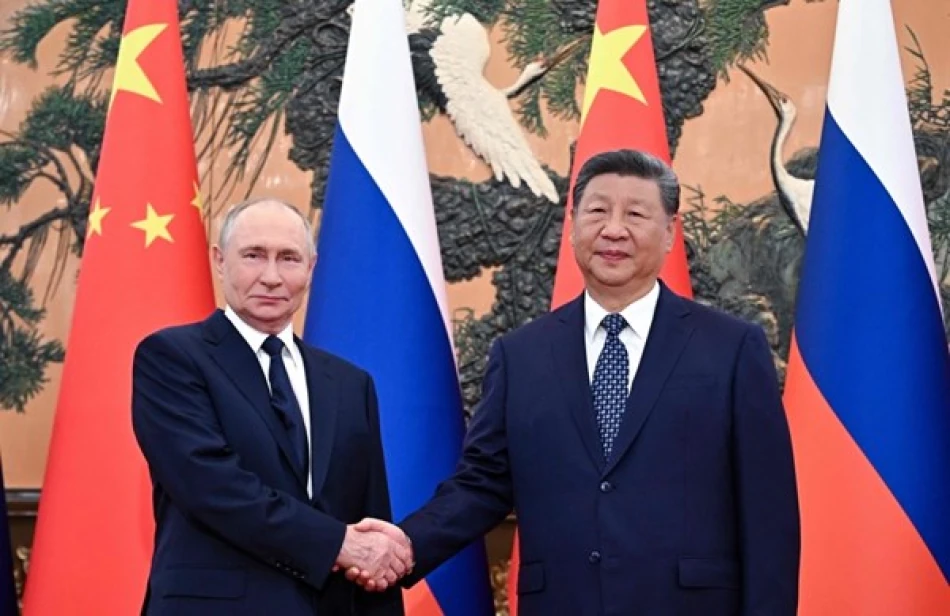
Chinese and Russian Presidents Commence High-Stakes Talks in Beijing
Putin and Xi Deepen Alliance as Russia Pivots Further East Amid Western Isolation
Russian President Vladimir Putin and Chinese President Xi Jinping began high-level talks in Beijing on Tuesday, marking another step in the strategic partnership that has grown stronger as Russia faces continued Western sanctions over Ukraine. The meeting comes ahead of a massive military parade commemorating the 80th anniversary of World War II's end, where Putin will stand alongside Xi in a symbolic display of Sino-Russian unity.
Strategic Timing Signals Deepening Partnership
Putin's extended visit to China, which began Sunday with his participation in a regional summit in Tianjin, demonstrates the increasing importance of the Beijing-Moscow axis in global geopolitics. The Russian leader's presence at Wednesday's military parade will be particularly significant, as few Western leaders are expected to attend the commemorative event.
This meeting represents more than diplomatic courtesy. For Russia, China has become an economic lifeline as Western sanctions continue to bite. For China, Russia provides energy security and a powerful ally in challenging the Western-dominated international order.
Economic Implications Beyond Politics
Energy and Trade Realignment
The Putin-Xi talks are likely to focus heavily on energy cooperation, with Russia redirecting oil and gas exports from Europe to Asia. China has become Russia's largest oil buyer, purchasing crude at significant discounts that help Moscow maintain revenue while offering Beijing cheaper energy inputs for its manufacturing economy.
This energy partnership creates a win-win dynamic that strengthens both economies while reducing their dependence on Western markets and payment systems.
Alternative Financial Architecture
The two leaders are expected to discuss expanding the use of national currencies in bilateral trade, further reducing reliance on the US dollar. This de-dollarization effort, while still in early stages, represents a long-term challenge to Western financial dominance.
Historical Context and Global Impact
The timing of this meeting, coinciding with World War II commemorations, carries deep historical symbolism. Both China and Russia view themselves as victims of Western aggression and see their partnership as a natural alliance of civilizations defending against Western hegemony.
Unlike the ideological Soviet-Chinese split of the Cold War era, today's partnership is pragmatic and economically driven. Both nations benefit from coordinating their responses to Western pressure while maintaining enough independence to pursue their own regional interests.
What This Means for Global Markets
Investors should watch for announcements on energy deals, infrastructure projects, and financial cooperation mechanisms. The strengthening of this partnership could accelerate the formation of alternative trading blocs and payment systems, potentially reshaping global supply chains and commodity flows.
For Western policymakers, the deepening China-Russia relationship presents a complex challenge: sanctions on Russia inadvertently strengthen Chinese influence while creating a more cohesive authoritarian bloc capable of challenging Western economic and military dominance.
Most Viewed News

 Layla Al Mansoori
Layla Al Mansoori






